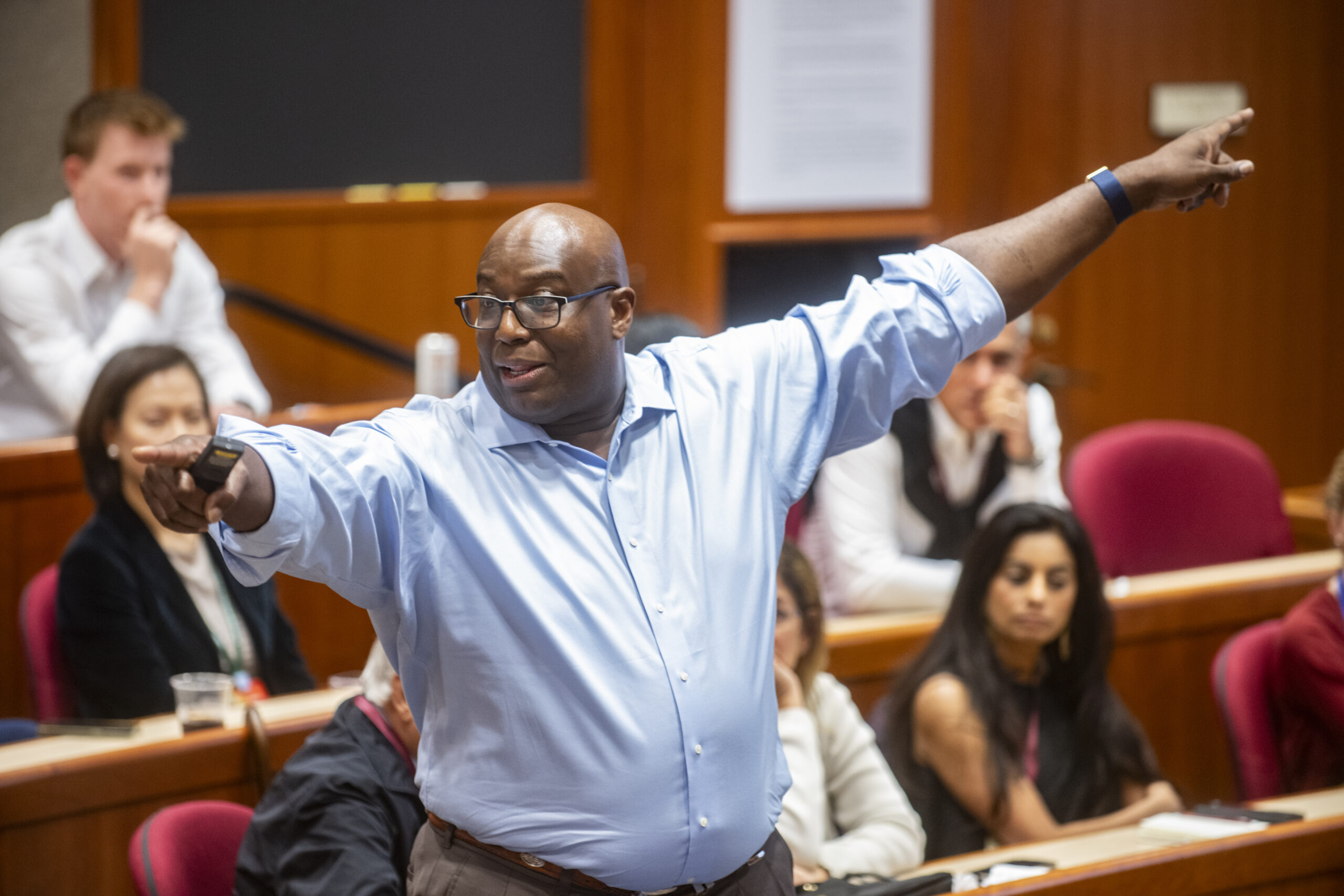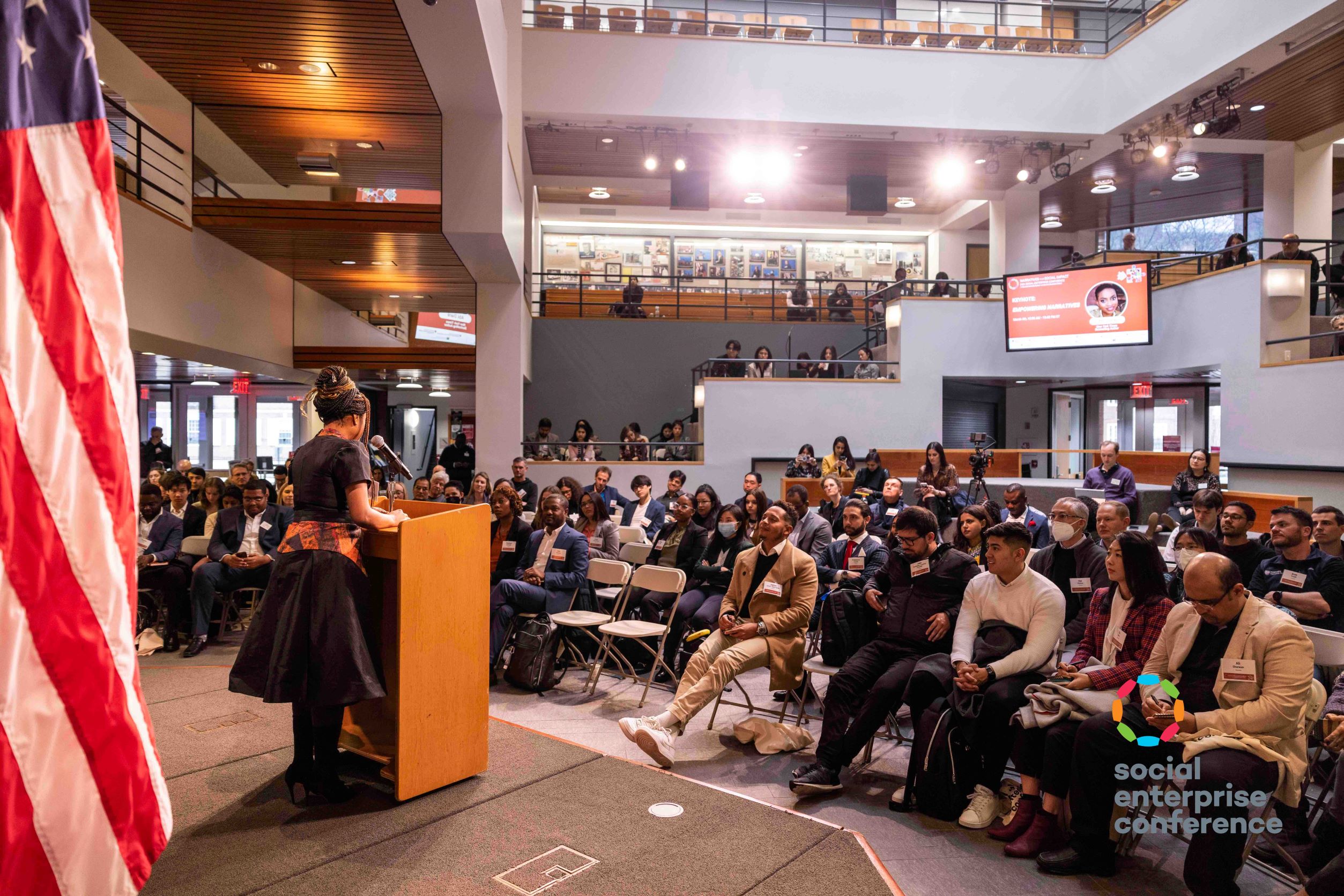

For its 24th edition, more than 500 students, faculty, and practitioners gathered again at Harvard Kennedy School and Harvard Business School in early March for the 2023 Social Enterprise Conference (SECON).
The focus of the two-day conference was “Empowering Narratives and Fostering Collaboration for Sustainable Social Impact.”
The conference kicked off with an incredible keynote address by Abi Daré offering perspectives from her childhood to help attendees find and leverage their louding voice. Participants then broke out into 21 different panels hosted by 70 different speakers discussing climate change, funding ecosystem, education, reimagining capitalism, health care, future of work, inclusive leadership and the role of the public sector over the weekend.
Here are some takeaways from the exciting discussions that took place.
Reflecting and addressing workplace burnout
Burnout is prevalent despite many efforts to tackle it in the workplace. This year's SECON highlighted a new social enterprise – Embers, a coaching business co-founded by Harvard alumna Hiba Khaled and Cornell graduate Maria Perez – dedicated to helping clients recover from burnout by building capacity for transformational and sustainable change. This workshop dove deeply into understanding the root cause of burnout and what people can do about it. Through role playing exercises and small group discussions, participants shared intimate experiences about what burnout looks like in their life or organization, and what is gained when giving up behaviors that reinforce burnout.
Alternative models to equitable housing
Panelists discussed the current housing crisis in the U.S. and their distinct approaches to addressing it including addressing homelessness; funding and scaling innovative housing startups; developing affordable housing in underinvested, blighted communities, with a focus on single-mothers; and tackling detrimental zoning codes with local governance. The speakers rallied around ideas such as legacies of housing-bias continue to be felt to this day, housing is a human right, and local voices must be incorporated in designing new projects.
Building wealth in communities: tactics and financial challenges
Speakers unpacked the drivers and implications of the growing wealth gap in society and highlighted the importance of homeownership and access to capital. Speakers also discussed public and private, as well as national and local government solutions to improve mobility and redress historical wrongs.
How society should respond to climate migration
This panel brought together speakers with academic, public sector, and non-profit backgrounds, and from city to international community levels. The panelists offered a moving and clear overview on how climate change is affecting the most vulnerable communities all over the world, and how the displacement of people especially in emerging economies often overlaps with displacement due to other reasons, like war and conflict. The need for collective action to address the causes and consequences of climate migration, including policy changes, planning, and support for affected populations was discussed. Speakers also invited the audience to see climate migration as a new opportunity to promote a more equitable society. Panelists provided concrete examples of best practices and of how cities, governments and the international community are working on new frameworks and solutions to promptly tackle this issue and what individuals can do to contribute.
Financing and investing for scalable climate impact
These discussions were centered around the opportunities and challenges ahead in closing the trillion-dollar climate financing gap, with a particular emphasis on the roles of multilateral development banks, philanthropy, and nature and biodiversity finance.
Outcome-based financing in the skilling and employment space
This panel discussed the promise of outcome-based financing instruments, such as career impact bonds, as a mechanism for aligning financial incentives with up-skilling and employment outcomes. This model enables tapping into private capital markets: learners or governments repay program costs only if certain outcomes are met (e.g., salary), with investors bearing the risk. Panelists outlined several challenges involved in scaling those instruments including the limited number of quality training providers, the payment structure which leaves the service provider without upfront funding and perverse incentives such as “cream-skimming” (i.e., selecting beneficiaries who are most likely to reach outcomes for the service provider). They also stressed the need to provide technical assistance to service providers in order to shorten implementation timelines and minimize programs’ evaluation complexity (e.g., leveraging social security data for job verification vs randomized control trials).
Driving innovation in women’s health
This panel brought together experts from across the healthcare value chain to discuss key challenges and opportunities in women’s health. The panelists highlighted challenges in advancing health including the lack of existing data on women’s bodies and the barriers to healthcare access. The conversation emphasized the opportunities available in women’s health R&D and the importance of giving women an active voice in their care.
Designing health equity
This fireside chat discussed how to design equitable healthcare systems where patients are empowered and involved in the design and delivery of services. Through the lens of Dan Miller’s tech entrepreneurship journey, the conversation covered how his digitally-enabled primary care solution builds inclusive culture-centered care for people of color.
Building back health
This panel brought together public health and global health leaders from the private and non-profit sectors. They explained challenges that were new and exacerbated with COVID over the last 3 years and described how multi-sectoral approaches are already being implemented to create more effective health systems. The conversation emphasized the importance of access, trust, collaboration, empowerment, commitment, community, localization, and equity when reaching marginalized communities in the U.S. and globally.
Attendees left Harvard truly inspired with meaningful connections made.